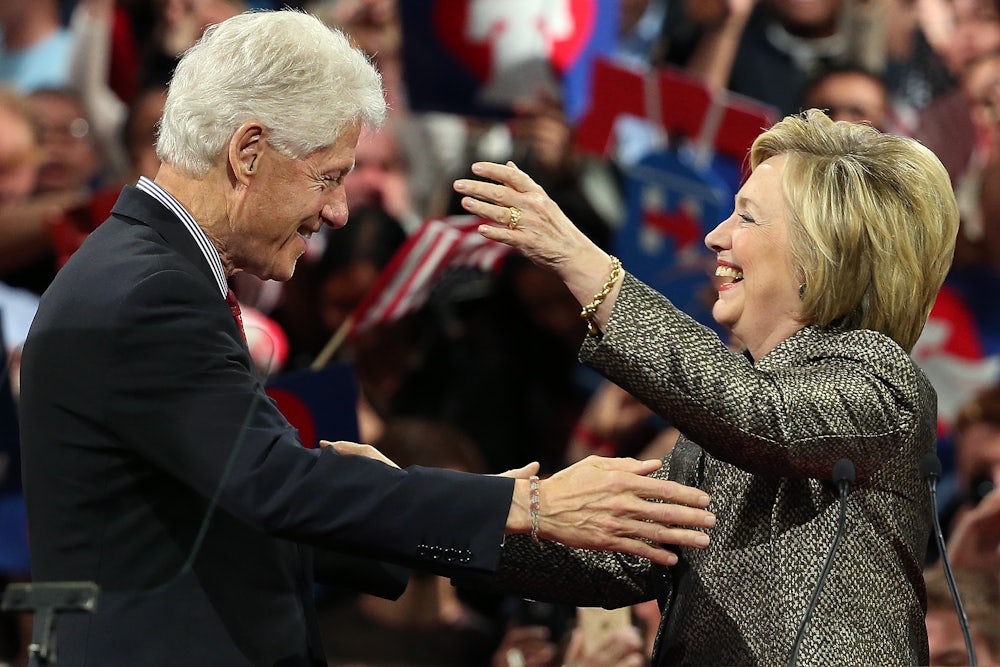After Hillary Clinton won four out of five states in Tuesday’s primary, Bernie Sanders issued a quasi-concession statement and announced the layoff of hundreds of staffers. It appeared he had recognized the obvious: Barring force majeure, Clinton will be the Democratic nominee. Sanders will—and should—stay in the race, and he has announced his intention to “fight for a progressive party platform” in Philadelphia. Sanders may not have won the war, but the support he’s attracted and mobilized is very important nonetheless, for a simple reason: Coalitions influence and shape the people who lead them. An old associate of Hillary Clinton’s recently provided an excellent illustration.
Last week, Virginia Governor Terry McAuliffe announced that voting rights will be restored for convicted felons who are no longer in prison. If his executive order is upheld, this will enfranchise more than 200,000 citizens of the state who have paid their debt to society and deserve a voice in their state government. It’s a bold, progressive action, exactly the kind of policy core Democratic voters are coming to expect from their leaders.
This major progressive reform didn’t come out entirely of the blue, either. On his first day in office, McAuliffe signed an executive order banning discrimination against state employees based on sexual orientation. In an action that foreshadowed his enfranchisement of felons, McAuliffe removed questions about criminal history from government job applications. He has been limited by a Republican-controlled legislature—his valiant fight to accept the Medicaid expansion ultimately failed—but he’s been a solidly progressive governor.
What’s interesting about this is that before assuming office, McAuliffe seemed like the ultimate political hack. The Clinton crony and prodigious fundraiser seemed worth voting for only because the Republicans were running the odious former state Attorney General Ken Cuccinelli against him. As New York’s Jon Chait put it at the time, “McAuliffe is the Democrat Democrats have been dying to vote against, except they can’t, because he’s running against a falling-off-the-right-edge-of-the-map Republican.” And yet, he’s been a good Democratic governor—not a hero by any means, but you won’t find enfranchising former felons in the DLC risk-aversion playbook either.
Skeptics might say that the order was just a cynical attempt to expand the potential Democratic electorate in a swing state. But this would be unfair. Many important progressive achievements, up to and including the Emancipation Proclamation, were also politically expedient. If expanding the electorate helps your party, there’s nothing wrong with that! More to the point, there are many potentially politically expedient initiatives—such as expanding Social Security and substantially increasing the minimum wage—that elite Democrats have nonetheless failed to embrace. Showing that these ideas have a real constituency is one reason Sanders’s run has been so valuable.
The real lesson of McAuliffe is that leaders don’t govern in a vacuum. Political context matters. If McAuliffe had been elected governor in the 1990s he likely would have been much more timorous and inclined to compromise with Republicans. But it ain’t the ‘90s anymore, and McAuliffe has gotten the message.
We have seen this play out in more historically consequential administrations. When Kennedy selected Lyndon Johnson as his running mate, progressive groups nearly revolted, given his frequently conservative record as a legislator and legislative leader. Had LBJ become president in 1952, it is enormously unlikely that he would be remembered as a progressive giant on domestic policy. But assuming office in the context of 1963, he went on to preside over the widest-ranging and least compromised collection of progressive legislation to be passed by Congress since Reconstruction.
Of course, with even Donald Trump unlikely to undermine the Republican hold of the House of Representatives, there will not be another Great Society starting in 2017, irrespective of whether Clinton or Sanders is the Democratic nominee. On the flip side, the fact that political leaders function within a particular context, and have their agendas largely shaped by the coalitions they lead, doesn’t mean that individual convictions are irrelevant. All things being equal, Clinton and Sanders would not govern in exactly the same way, and a Sanders presidency would be more liberal in some respects.
Still, political pressure can compel leaders to act, and it can also provide a context in which sound policy views can be given practical impetus. So while Sanders won’t be the nominee, his campaign matters for the Democratic Party as a whole. Leaders often act as weathervanes, but this isn’t a bad thing if the wind is blowing in the right direction. Hillary Clinton is unlikely to govern the way her husband did in the ‘90s, and for that matter Bill Clinton probably wouldn’t be the Bill Clinton we remember if he assumed office in 2017. In the end, presidents lead coalitions.
